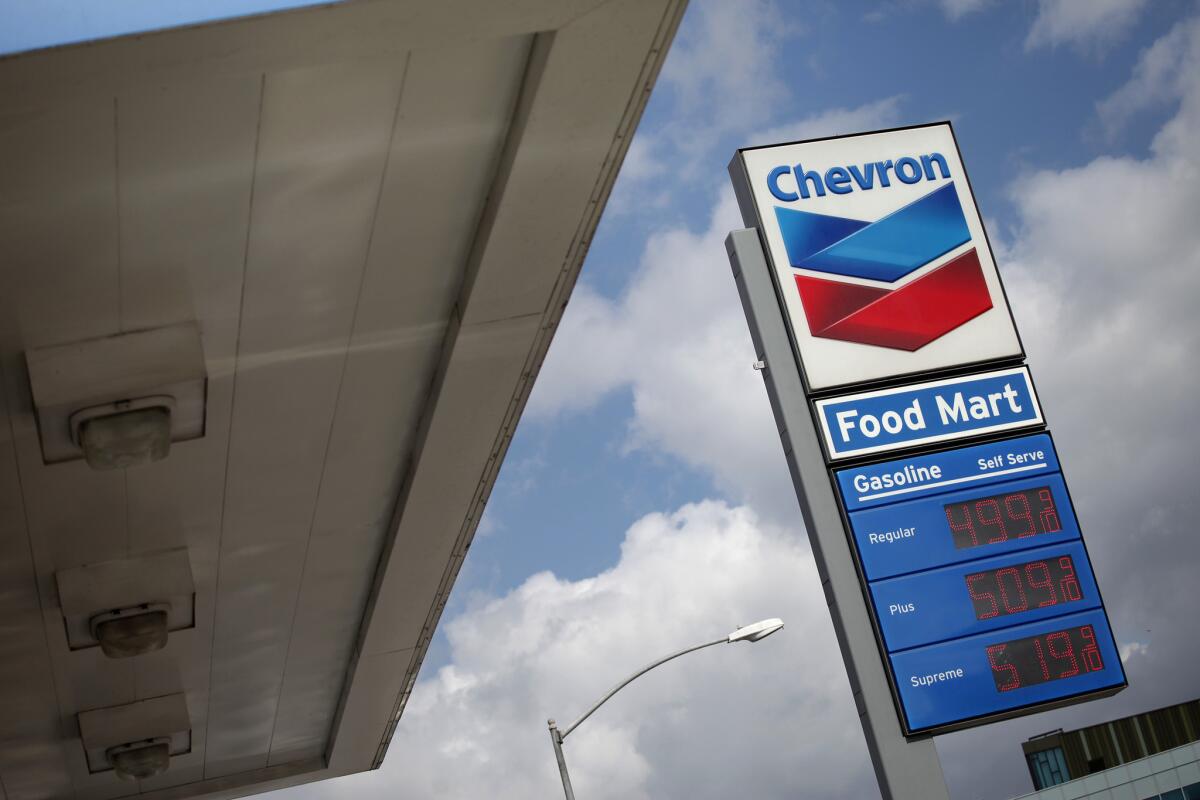Falling gas prices don’t always influence car buyers’ choices, studies hint

- Share via
When gas prices go down, sales of electric vehicles go down too, right? And by the same token, you’d think that lower gasoline prices must mean increased sales of gas guzzlers and decreased sales of electric vehicles and hybrids.
But that’s not the case, new studies show: Electric-vehicle sales, and sales of high-gas-mileage cars, continue to hold steady, while the current increase in sales of light trucks began before gas prices started to fall.
“Nobody is trading in their Nissan Leaf for an Escalade. And vice versa,” said Chris Coleman, founder of Carlypso, an online firm that facilitates private-party sales of used cars.
Carlypso’s research showed the ratio of passenger car sales to truck sales at 51% to 49% in December 2013. By June 2014, that had shifted considerably, with truck sales leading passenger car sales by 53% to 47%.
“That’s a 10% uptick in truck sales,” Coleman said. “But that occurred before the precipitous fall in gas prices. Most people made the decision to go truck or go car before gas prices changed.”
In the EV world, meanwhile, January sales of plug-in electric vehicles rose 3% over their January 2014 levels. Monthly sales of plug-in vehicles were below levels hit in a high May-through-August period, but battery electric-vehicle monthly sales rose steadily through the same period, according to the Electric Drive Transportation Assn, a trade group.
Curiously, however, one study found that falling gas prices appear to dramatically influence used car sales: When gas prices go down, truck sales go up. When gas prices go up, truck sales go down and passenger car sales go up.
A $1 drop in the cost of a gallon of gasoline, according to the study of 27 million used-car transactions by the online automotive firm iseecars.com, precipitated a 2% increase in truck sales.
When gas prices were $3.90 a gallon, the study observed, truck sales accounted for about 9.5% of all used-vehicle sales. When gas dropped to $2.90 a gallon, that percentage rose to 11.5%.
A $1 rise in the cost of a gallon of gas, conversely, saw a comparable change in passenger car sales.
EV proponents like to point out that, even at $2 a gallon, gasoline is a lot more expensive than electrical power -- twice as expensive, according to Genevieve Cullen, president of the Electric Drive Transportation Assn.
“Domestically produced grid electricity, on average, can power plug-in cars at the equivalent of $1 per gallon of gasoline,” Cullen said in a recent statement.
The problem with that logic, said Carlypso’s Coleman, is that consumers don’t always buy automobiles with their own best interests at heart, or in mind.
“Buying a car is more an emotional purchase than a rational one,” he said. “The message [for automakers] is consistent: Make what people want. You have to capture them with emotion, not practicality.”
Twitter: @misterfleming







